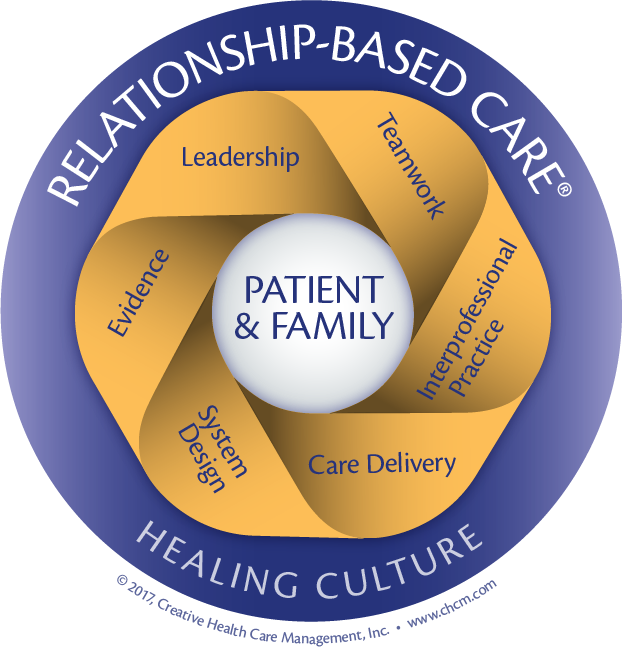
A big part of Relationship-Based Care® and Magnet® Recognition is recognizing what it will do to improve nursing excellence and patient outcomes for healthcare organizations. The pursuit of excellence extends beyond the boundaries of individual achievements to encompass the collective efforts of entire organizations. Much like the world’s greatest athletes or teams vying for top honors in their fields, health care institutions pursue excellence not just for the accolade but for the profound impact it has on their organization, staff, and most importantly, their patients.
A few national recognition programs include the American Nurses Credentialing Center (ANCC):
- Magnet Recognition Program®
- Pathway to Excellance® Program
- Excellence in Long Term Care® Program
The Magnet Recognition Program® stands out as a beacon of excellence for nursing services.
However, achieving such prestigious recognition is not merely about meeting set standards but about embodying the principles of Relationship-Based Care (RBC) at the heart of the institution’s culture.

Why Relationship-Based Care Matters
RBC is a transformative approach that places relationships at the core of health care delivery. It emphasizes the critical connections between caregivers and patients, among team members, and within the community. By fostering a culture of respect, empathy, and collaboration, RBC not only enhances patient outcomes but also enriches the work environment for health care professionals.
The Synergy Between RBC and Magnet Recognition
The journey towards Magnet recognition is a rigorous one, demanding evidence of excellence across various aspects of nursing practice and leadership. Yet, it is a journey that aligns seamlessly with the principles of RBC. Institutions that have nurtured a relationship-based culture find themselves naturally equipped to meet and surpass the Magnet model’s requirements. This synergy is evident in several key areas:
Transformational Leadership
Transformational Leadership in Relationship-Based Care and the Magnet recognition program emphasizes inspiring and uniting individuals across the organization to achieve a collective vision or greater good. This leadership style is integral to both RBC and Magnet, focusing on placing the patient and their family at the heart of care.
Magnet designation standards expect leaders to be innovative, participative, and advocates for shared decision-making.
The goal is to cultivate a setting that prioritizes the intricate needs of patients and families, engaging teams in appreciative and forward-looking dialogues. This approach leverages Appreciative Inquiry techniques, which are foundational to RBC’s methodology and execution, aiming to highlight and expand on existing strengths while identifying areas for improvement.
Both RBC and the Magnet model champion leadership that inspires and unites.
Structural Empowerment
RBC encourages individuals who are directly involved with the work to actively participate in creating and enhancing their own operational systems and procedures. This approach aligns with the structural empowerment aspect of the Magnet recognition program and framework, which emphasizes enabling nurses to shape their work environment and ensuring the presence of collective decision-making mechanisms. The facets of system design and interprofessional collaboration within RBC are pivotal, as they underpin the implementation of RBC on a model of shared decision-making.
Magnet standards stipulate that employees’ perspectives must be reflected in the creation of personnel policies and procedures, alongside establishing mechanisms for formal peer evaluations at every organizational tier. RBC’s focus on leadership mandates that leaders must proactively facilitate staff engagement by inviting their input in decision-making processes.
Empowering staff to make decisions and take ownership of their work is a cornerstone of both RBC and Magnet recognition.
Exemplary Professional Practice
Originally, Magnet recognition was awarded to the nursing field for exceptional practice. However, it is now understood within the Magnet community that achieving high-quality patient care and outstanding patient outcomes requires the collaborative efforts of the entire organization, across all professional disciplines. The importance of teamwork across professions is recognized as a fundamental aspect of professional practice.
In a Magnet designation environment, nurses are expected to take responsibility for their practice setting and the coordination of patient care. RBC supports this Magnet standard by providing a theoretical foundation that emphasizes the nurse’s role in decision-making for patient care. For instance, through the assignment of a Primary Nurse, care coordination is managed by a specifically assigned RN, ensuring that nurses in Magnet settings practice autonomously and make independent care decisions. This aspect of RBC aligns with the Magnet requirement by promoting the establishment of systems and processes that enable Primary Nurses to make independent decisions regarding patient care.
Additionally, Magnet standards call for the availability and use of peer support and expert consultation by clinical staff, drawing from both internal and external sources across various professions. RBC promotes this interprofessional peer support by encouraging leadership development, participation in councils, effective communication strategies, and the regular sharing of progress and outcomes, particularly those related to patient care.
The Magnet model and RBC both recognize the importance of interdisciplinary collaboration for delivering superior patient care. They encourage practices that allow nurses to exercise autonomy, collaborate across disciplines, and continuously improve through evidence-based practice.
New Knowledge, Innovations, and Improvements
A Magnet component emphasizes the importance of using evidence and research to improve patient outcomes and workforce outcomes. It highlights the principle that individuals directly involved in work are best suited to develop and optimize systems and processes.
This component aligns with the Relationship-Based Care approach, particularly in its focus on interprofessional practice and evidence-based practice, suggesting a strong correlation between practical, research-informed improvements and RBC’s values.
Empirical Outcomes
In environments recognized by Magnet, achieving superior quality is a top goal. This is verified through involvement in national databases that showcase results surpassing the average national benchmarks. The Relationship-Based Care model measures success through patient and staff satisfaction, engagement levels, and both the quantitative and qualitative evidence that informs adjustments in care practices. Essentially, RBC, Magnet, and similar prestigious organizations target excellence across three key performance indicators:
1. Patient Outcomes: Improvements in patient health outcomes, such as reductions in fall incidents, occurrences of infections acquired within the hospital, development of pressure ulcers from hospital stays, and overall decreases in patient morbidity and mortality rates.
2. Employee Satisfaction: Enhancements in staff satisfaction, which include the creation of positive workplace relationships, ensuring employee safety, fostering a sense of empowerment among staff, and improving staff retention rates.
3. Patient Satisfaction: Elevations in patient satisfaction levels, encompassing how patients feel they are treated (with respect and courtesy), their involvement in decisions about their care, promptness in service, effective pain management, and the degree to which staff listen to their concerns.
The Magnet® Journey: A Path to Excellence
Embarking on the Magnet journey is a testament to an organization’s commitment to excellence in nursing practice and its dedication to a healthy, relationship-based culture. While the path to participating in a Magnet recognition program is demanding, it is also immensely rewarding. It offers an opportunity to celebrate achievements, elevate nursing and patient care, and professional growth to reinforce the commitment to providing the highest quality of care.
Conclusion
An organization’s pursuit of Magnet recognition, rooted in the principles of Relationship-Based Care, is more than a journey towards a prestigious accolade; it is a journey towards transforming healthcare delivery. By placing relationships at the heart of care, health care organizations can create an environment where nursing excellence flourishes, benefiting patients, staff, and the broader community alike.
In the end, the true measure of success lies not in the recognition received but in the lives touched and improved through compassionate, relationship-based care.
Source
This article is from Gen Guanci and Markey Medeiros Chapter 12 in “Advancing Relationship-Based Cultures”
MAGNET®, Magnet Recognition Program®, ANCC Magnet Recognition®, Journey to Magnet Excellence®, Pathway to Excellence® Program, Pathway to Excellence in Long Term Care®, Demographic Data Collection Tool®, DDCT®, Practice Transition Accreditation Program® (PTAP) are registered trademarks of the American Nurses Credentialing Center (ANCC). The products and services of Creative Health Care Management are neither sponsored nor endorsed by ANCC. All rights reserved.
The content presented in here is the expressed opinion of the author and not that of the American Nurses Credentialing Center (ANCC).
Gen is driven by the desire to help clients create organizational excellence through measurable improvement. She thrives on helping others reach meaningful goals, including Magnet® designation.





